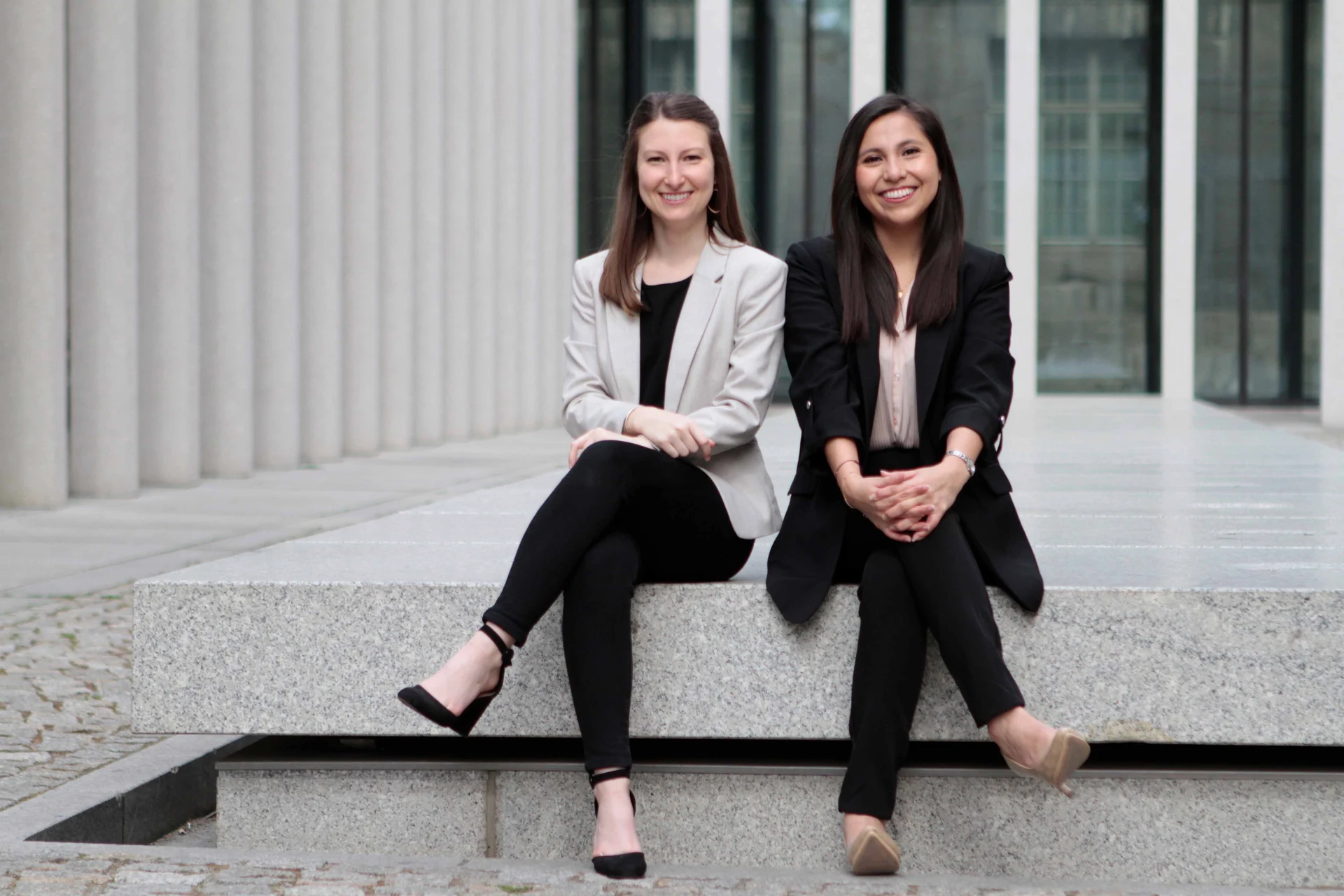"In five years, we want to have built a brand that makes us the leading gender equality and MINT company in Europe," they say confidently. "We want to reach as many children as possible and be trusted by companies and governments to have a positive impact on society." Listening to Sonia Gonzales and Nicole Oubre you get the feeling: they can do it. Because they are convinced of their idea, because they are incredibly committed and focused. Because they succeed in convincing others of their idea. And because they themselves are "on fire" for the idea of making a contribution to making the world a little better. This is the story of the MINTy Girls, who are now MINTy Education GmbH...
It already began during a social entrepreneurship seminar at the University of Erfurt. The students were asked to develop a business idea that would make a positive contribution to society. Even then, Sonia and Nicole did not want to leave the MINT field, i.e. Mathematics, Computer Science, Natural Sciences and Technology (for Secondary Schools) to the "boys" alone. The students at the Willy Brandt School of Public Policy at the University of Erfurt were determined at the time to promote a new generation of self-confident girls in the so-called MINT fields. And to do so, they founded their own start-up - the "MINTy Girls".
"Various studies show that girls in Germany already lose interest in MINT subjects at the age of about fifteen," Sonia Gonzales explains. "The result: engineers are usually men. To make matters worse, girls, unlike boys, tend to underestimate their Mathematics skills. We knew: if we want to change this, we have to awaken a new interest in the girls and strengthen their self-confidence - ideally before they even enter fifth grade. And for that, it's important to overcome stereotypes that supposedly dictate who belongs in which appointment."
And that's exactly what the three founders set out to do with the "MINTy Girls" back then. Their plan: to offer workshops and camps for girls from the age of eight, led by female role models, in which their creativity and interest in MINT subjects is not only awakened, but also promoted in the long term. So the students set out to find supporters and make their project a reality. "We have received overwhelming support in our immediate environment. We also received help from the Erfurt university's start-up service. And the positive feedback we received during the Investor Days Thuringia from the people who came to our stand of course gave us additional motivation," Nicole Oubre recalls.
For their pilot workshop, they quickly found not only an Erfurt school but also a local company to support them in their work. The next big step was an EXIST scholarship from the EXIST funding programme of the Federal Ministry of Economics and Climate Protection, which the students received after graduation and which enabled them to continue building their company full-time. Sonia and Nicole applied for the scholarship together with the team from the University's Founders Service, which supervised and supported them for the duration of twelve months. They also found several cooperation partners who helped them get started and from whom the founders could learn a lot. And they had to, Sonia admits: "We faced several challenges besides the language barriers: The biggest one for us was understanding the German education system, especially for us as foreigners. I come from Peru, Nicole from the USA. Everything is very different there, of course. But through our extensive research and conversations with school headmasters, teachers and parents, we were able to master that too."
Today, the "MINTy Girls", who have since become MINTy Education GmbH (in pairs), are based in Berlin. "We thought the start-up scene here was perfect for us," says Nicole. "But we work all over Germany. Right now, for example, we're doing MINT workshops in Baden-Württemberg and North Rhine-Westphalia." And they can make a living from their business in the meantime. One of their biggest clients is 3M, a global US multi-technology corporation. "It's already a great feeling," the two entrepreneurs explain. "Even our first paying customer was a great moment for us," they recall. "That wouldn't have been possible without the EXIST grant, which was another big step. But the best feeling, and therefore our biggest success, is when we see children learning, having fun and discovering science and technology for themselves through our workshops."
"Sonia and Nicole's story is a success story. And one that proves that start-ups not only work at a humanities university like ours, but can also have an impact on society in the spirit of social entrepreneurship," say Martin Hellmann and Jana Theuerkauf from the Founders Service at the University of Erfurt. "And the fact that we were able to contribute to this also makes us a little proud."


